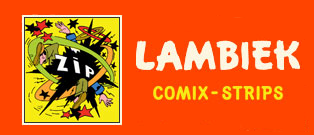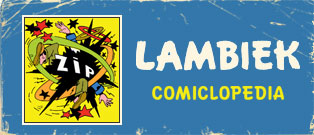Comics History
Introduction
Welcome to the illustrated History of Dutch Comics, an overview and introduction to comics and 'strips' in the Netherlands.Comics have existed in Holland for a long time in some form or other, with a variety of interesting themes. Sequential art evolved in the Netherlands from the medieval centsprent to 'text-strips', and to the modern stripverhalen or 'strips' which we have today. We are delighted to share this unique heritage with you.
![Dutch comics before 1920]() Origins of early Dutch comics
Origins of early Dutch comics
Early examples of sequential art from the Dutch 'low lands' date back to the Middle Ages, and gained more importance right on through the 1800s.
![Dutch comics 1920 - 1940]() Dutch comics 1920-1940
Dutch comics 1920-1940
In the interbellum period between the World Wars, Holland discovered imported comics, and achieved a rich comics productivity itself.
![Dutch comics during and around World War 2]() Dutch comics around 1940-1945
Dutch comics around 1940-1945
Because of German occupation in World War II, Holland had to deal with a ban on imports, the rise of propaganda in comics, and scarcity of paper.
![Dutch comics 1945-1950]() Dutch comics 1945-1950
Dutch comics 1945-1950
After the war, the initial paper scarcity and a ban on the small beeldromans made an impact, but soon Dutch comics were off to a new start.
![Dutch comics 1950-1968]() Dutch comics 1950-1967
Dutch comics 1950-1967
With an increasing number of newspapers, the comics industry bloomed again. The import of American comics also made its mark on the Dutch scene.
![Dutch comics 1968-1980]() Dutch comics 1968-1980
Dutch comics 1968-1980
Not surprisingly, 1968 was a revolutionary year for comics, and many Dutch underground comix magazines flourished throughout the seventies.
![Dutch comics: around 1980]() Dutch comics around 1980
Dutch comics around 1980
Inspired by international comics, Dutch comic artists reached a new level of professionality.
![Dutch comics: contemporary comics]() Contemporary Dutch comics
Contemporary Dutch comics
A new generation of comic artists has emerged in Holland during the last decade.
Dutch comic artists in the Comiclopedia
From the expanded Dutch edition: De Nederlandse Stripgeschiedenis

